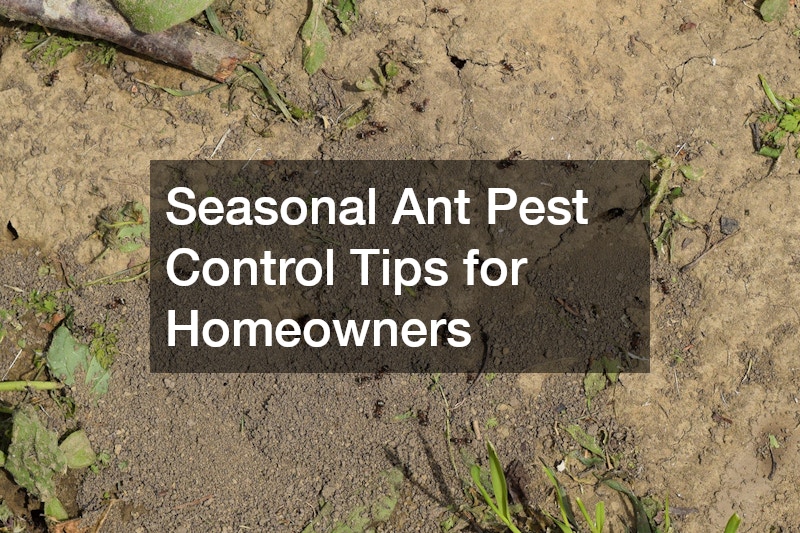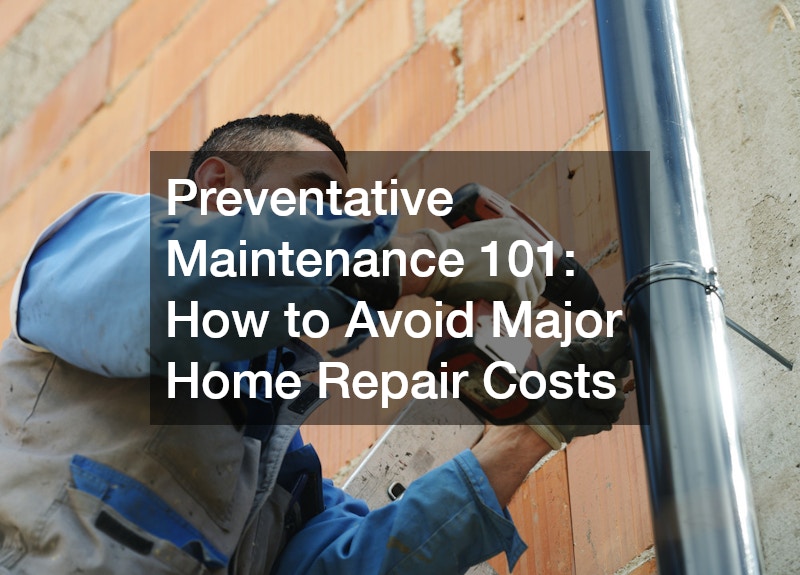Understanding the seasonal habits of ants and implementing effective ant pest control strategies is essential for homeowners who want to keep their living spaces ant-free. Ant infestations can be a major issue, but by taking a proactive, year-round approach, you can significantly reduce the chances of a problem developing in the first place. Ants are persistent and resourceful, often returning to previous food sources if not properly addressed. By recognizing seasonal patterns, homeowners can stay one step ahead and make adjustments before ants become a noticeable problem.
Start With Sealing and Cleaning
Begin by sealing potential entry points around your home. Inspect for cracks around windows, doors, and the foundation—especially where utility lines enter.
These small gaps are common access points for ants, particularly during the colder months when they’re drawn indoors by warmth. Preventing access from the outside is one of the simplest and most effective ways to avoid an infestation. Equally important is maintaining a clean and tidy home. Ants are highly attracted to food residues and spills, so be diligent about wiping down surfaces, sweeping floors, and storing food in airtight containers. Make sure garbage bins are tightly sealed and emptied regularly. This is especially critical during the spring and summer when ant activity is at its peak and they are actively foraging for food sources. Pair this with a consistent cleaning routine to remove food temptations. Even crumbs or sticky residue left overnight can draw in large numbers of ants looking for an easy meal.
Use Landscaping to Your Advantage
The way you manage your outdoor space also affects your ability to control ants. Mulching too close to the home can create a direct path for ants, while dense vegetation and overgrown shrubs provide ideal nesting conditions. Keeping grass trimmed, bushes pruned, and wood piles elevated and away from the home helps reduce these risks. Seasonal landscaping should also include removing leaf piles in the fall and planting natural repellents like mint or tansy in the spring to act as a barrier. Strategic landscaping not only deters ants but also improves overall yard health. Creating a clean and open perimeter around your home gives pests fewer places to hide and nest.
When to Call in the Professionals
While many homeowners take a DIY approach, professional ant pest control services can offer more targeted and comprehensive solutions, particularly for persistent infestations. A professional will begin with a detailed inspection to locate nests and entry points—sometimes spotting subtle signs that the average person might overlook. They can then recommend and apply targeted treatments such as bait stations or non-residential chemical solutions, adjusted based on the type of ant and the time of year. These experts also understand the environmental conditions that contribute to infestations. Their knowledge can be key to identifying long-term prevention strategies tailored to your home’s specific layout and surroundings.
Keep Up With Follow-Up Maintenance
Follow-up care is just as important as the initial treatment. Regular inspections, monitoring of bait stations, and routine maintenance can catch early signs of re-infestation and allow for timely intervention. Professionals can also offer advice on any changes you can make at home to reduce future risks. Without follow-up, ants can quickly return and rebuild colonies. Ongoing support ensures that the original infestation is fully eradicated and that your home remains protected over time. Winter may seem like a downtime for pests, but it’s a key moment to reinforce your defenses. Seasonal planning gives you control rather than reacting after ants have already become a problem.
Plan Around the Seasons
The best time to implement pest control strategies depends on the season. In spring, ants become more active, making it an ideal time to lay down bait and inspect your property. During summer, reinforce those efforts with more intensive treatments and frequent checks. Come fall, seal off entry points and reduce moisture and debris around the home to deter ants from moving inside for shelter.
Staying ahead of ant activity through seasonal ant pest control strategies ensures your home remains protected all year long. With consistent care and timely prevention, homeowners can maintain a pest-free environment regardless of the season. By making pest control part of your seasonal home routine, you avoid surprises and costly infestations. A little attention each season can go a long way toward keeping ants out for good.
.




